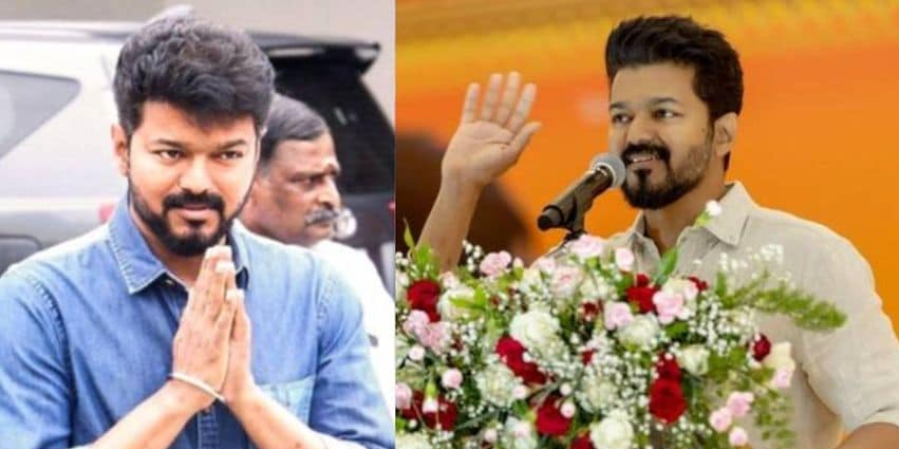

The launch of Vijay's political party marks a significant moment in Indian politics, blending the worlds of cinema and governance in a way that has long intrigued the public. Vijay, a charismatic and immensely popular actor known for his roles in Tamil cinema, has decided to step into the realm of politics, a move that has been speculated and anticipated for years.
Vijay's journey to forming his own political party has been characterized by both enthusiasm and skepticism. His popularity among the masses, especially in Tamil Nadu, where cinema and politics are closely intertwined, provides a strong foundation for his foray into the political arena. Known for his socially conscious roles on screen, Vijay has cultivated an image of a champion for the common people, often addressing issues of social justice, corruption, and governance in his films. This has endeared him to a vast audience who see in him not just an entertainer but also a potential leader who can bring about change.
The announcement of Vijay's political party was met with great anticipation and fanfare. Supporters and fans alike gathered in large numbers, waving flags emblazoned with his image and slogans that echoed his promises of reform and progress. The launch event itself was a spectacle, with Vijay delivering a passionate speech outlining his vision for the state and the country. He spoke of the need for transparency in governance, empowerment of marginalized communities, and sustainable development that preserves the environment for future generations.
Critics, however, have raised questions about Vijay's transition from cinema to politics. They argue that popularity alone does not guarantee effective governance or policy-making. Some have questioned his lack of experience in political administration and his ability to navigate the complexities of statecraft. Moreover, skepticism persists about the role of cinema in shaping public perception and whether Vijay's on-screen persona can translate into effective leadership off-screen.
Despite these reservations, Vijay's political aspirations have struck a chord with many who feel disillusioned with traditional political parties and their track records. His appeal lies in his ability to connect with ordinary citizens, articulating their concerns and aspirations in a way that resonates deeply.
Looking ahead, the success of Vijay's political party will depend on several factors. Building a robust organizational structure, articulating clear policy platforms, and mobilizing grassroots support will be crucial in the lead-up to elections. Vijay will also need to demonstrate his ability to collaborate with other political stakeholders, negotiate diverse interests, and deliver on the promises he has made to his supporters.
In conclusion, the launch of Vijay's political party marks a significant milestone in Indian politics, blending celebrity influence with governance in a way that both excites and challenges conventional wisdom. As he embarks on this new chapter of his career, Vijay faces both immense opportunities and daunting challenges. The coming months and years will reveal whether his charisma and popularity can translate into effective leadership and meaningful change for the people he seeks to represent.
